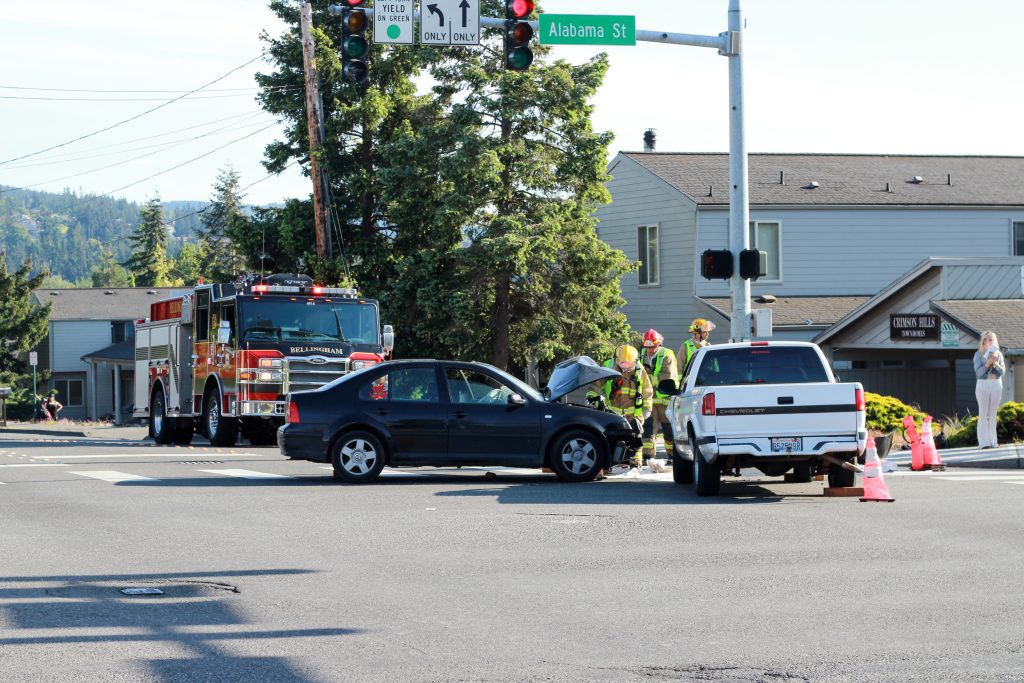 If you purchase an under or uninsured insurance policy, you might expect it to cover you if you are involved in a car accident. However, such insurance policies only apply in limited circumstances. By understanding your under or uninsured insurance policy and what evidence is required to establish your damages, you can avoid surprises down the road.
If you purchase an under or uninsured insurance policy, you might expect it to cover you if you are involved in a car accident. However, such insurance policies only apply in limited circumstances. By understanding your under or uninsured insurance policy and what evidence is required to establish your damages, you can avoid surprises down the road.
Tracy Brumfield was driving near Independence, Louisiana in her pickup. As she slowed to a stop, a car that Jacob Currier was driving hit into the back of her truck. Although Brumfield tried to turn to avoid hitting another car, her front door to hit into the rear bumper of the car in front of her, which allegedly hurt her leg and back.
Brumfield filed a lawsuit against Currier, his insurer, and Allstate, who was the carrier for her under or uninsured motorist policy. She claimed Allstate was liable to her for all available relief under La. R.S. 22:1892 and 22:1973, including attorney fees and costs. At trial, Allstate stipulated Currier was solely at fault for causing the accident. However, Allstate moved for an involuntary dismissal of Brumfield’s claims for attorney fees and penalties. Allstate argued Brumfield had not proven her claim’s value exceed Currier’s liability policy limits. Allstate also claimed it had not been arbitrary capricious in failing to pay Brumfield, so she was not entitled to recover penalties and attorney fees.
The trial court ruled Brumfield had not proved she suffered damages exceed Currier’s policy’s limit of $50,000. The trial court also ruled Allstate had not arbitrarily refused to pay Brumfield, so she was not entitled to penalties and attorney fees. Brumfield appealed.
On appeal, Brumfield argued the trial court erred in granting Allstate’s motion to dismiss her claim and not awarding her penalties and attorney fees. In determining whether it is appropriate to grant a motion for involuntary dismissal, a court considers whether the plaintiff (here, Brumfield) presented sufficient evidence to establish his or claim.
Here, the trial court had not had to evaluate who was at-fault for the accident, because Allstate stipulated Currier was solely at fault for causing the accident. However, the appellate court agreed with the trial court Brumfield had not established her damages exceeded $50,000. Although Brumfield claimed to have injured her back and leg in the accident, prior to the accident, she had been receiving treatment for back pain. She acknowledged her back pain after the accident was in the same location as before the accident.
Because Brumfield did not establish her damages exceeded $50,000, Allstate was not arbitrary or capricious by not paying her claim. Therefore, the appellate court affirmed the trial court’s dismissal of Brumfield’s claims against Allstate and denial of her requested attorney fees and penalties.
Solely having underinsured motorist coverage is not sufficient to ensure you are covered in case of an accident. You must also be able to establish that your damages from the accident exceed the responsible party’s insurance coverage. A good lawyer can advise you on what evidence you can present to establish your damages.
Additional Sources: Tracy Brumfield v. Jacob Currier, et al.
Article Written By Berniard Law Firm
Additional Berniard Law Firm Article on Uninsured Motorist Coverage: Considering Uninsured motorist coverage in Louisiana, Be Careful What You Sign For
 Louisiana Personal Injury Lawyer Blog
Louisiana Personal Injury Lawyer Blog

